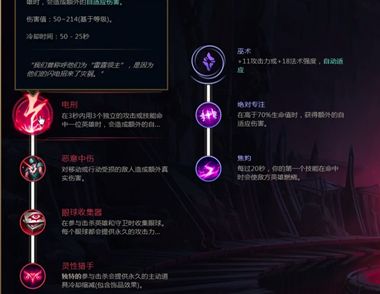qmail-local代码分析
下面图老师小编要向大家介绍下qmail-local代码分析,看起来复杂实则是简单的,掌握好技巧就OK,喜欢就赶紧收藏起来吧!
我分析的代码没有“夜未眠”大哥的好,可能还有的不正确,就请各位多多指教,谢谢
代码:
#include sys/types.h
#include sys/stat.h
#include "readwrite.h"
#include "sig.h"
#include "env.h"
#include "byte.h"
#include "exit.h"
#include "fork.h"
#include "open.h"
#include "wait.h"
#include "lock.h"
#include "seek.h"
#include "substdio.h"
#include "getln.h"
#include "strerr.h"
#include "subfd.h"
#include "sgetopt.h"
#include "alloc.h"
#include "error.h"
#include "stralloc.h"
#include "fmt.h"
#include "str.h"
#include "now.h"
#include "case.h"
#include "quote.h"
#include "qmail.h"
#include "slurpclose.h"
#include "myctime.h"
#include "gfrom.h"
#include "auto_patrn.h"
void usage() { strerr_die1x(100,"qmail-local: usage: qmail-local [ -nN ] user homedir local dash ext domain sender aliasempty"); }
void temp_nomem() { strerr_die1x(111,"Out of memory. (#4.3.0)"); }
void temp_rewind() { strerr_die1x(111,"Unable to rewind message. (#4.3.0)"); }
void temp_childcrashed() { strerr_die1x(111,"Aack, child crashed. (#4.3.0)"); }
void temp_fork() { strerr_die3x(111,"Unable to fork: ",error_str(errno),". (#4.3.0)"); }
void temp_read() { strerr_die3x(111,"Unable to read message: ",error_str(errno),". (#4.3.0)"); }
void temp_slowlock()
{ strerr_die1x(111,"File has been locked for 30 seconds straight. (#4.3.0)"); }
void temp_qmail(fn) char *fn;
{ strerr_die5x(111,"Unable to open ",fn,": ",error_str(errno),". (#4.3.0)"); }
int flagdoit;
int flag99;
char *user;
char *homedir;
char *local;
char *dash;
char *ext;
char *host;
char *sender;
char *aliasempty;
stralloc safeext = {0};
stralloc ufline = {0};
stralloc rpline = {0};
stralloc envrecip = {0};
stralloc dtline = {0};
stralloc qme = {0};
stralloc ueo = {0};
stralloc cmds = {0};
stralloc messline = {0};
stralloc foo = {0};
char buf[1024];
char outbuf[1024];
/* child process */
char fntmptph[80 + FMT_ULONG * 2];
char fnnewtph[80 + FMT_ULONG * 2];
void tryunlinktmp() { unlink(fntmptph); }/*删除fntmptph文件,或连接*/
void sigalrm() { tryunlinktmp(); _exit(3); }
void maildir_child(dir)
char *dir;
{
unsigned long pid;
unsigned long time;
char host[64];
char *s;
int loop;
strUCt stat st;
int fd;
substdio ss;
substdio ssout;
sig_alarmcatch(sigalrm);//捕捉时间信号。
if (chdir(dir) == -1) { if (error_temp(errno)) _exit(1); _exit(2); }
pid = getpid();//获取当前的进程号。
host[0] = 0;
gethostname(host,sizeof(host));
for (loop = 0;;++loop)
{
time = now();
s = fntmptph;
s += fmt_str(s,"tmp/");/*将"tmp/"拷到s中*/
s += fmt_ulong(s,time); *s++ = '.';/*将时间转化为字符串*/
s += fmt_ulong(s,pid); *s++ = '.';
s += fmt_strn(s,host,sizeof(host)); *s++ = 0;
if (stat(fntmptph,&st) == -1) if (errno == error_noent) break;
/* really should never get to this point */
if (loop == 2) _exit(1);
sleep(2);
}
str_copy(fnnewtph,fntmptph);
byte_copy(fnnewtph,3,"new");
//时间为24小时
alarm(86400);
fd = open_excl(fntmptph);
if (fd == -1) _exit(1);
///////////////////////////////////////////////////
substdio_fdbuf(&ss,read,0,buf,sizeof(buf));
substdio_fdbuf(&ssout,write,fd,outbuf,sizeof(outbuf));
//dtline:邮件头Delivered-To部分
//rpline:邮件头返回路径
//无需"From "头部
if (substdio_put(&ssout,rpline.s,rpline.len) == -1) goto fail;
if (substdio_put(&ssout,dtline.s,dtline.len) == -1) goto fail;
//将邮件写到文件fd中
switch(substdio_copy(&ssout,&ss))
{
case -2: tryunlinktmp(); _exit(4);
case -3: goto fail;
}
if (substdio_flush(&ssout) == -1) goto fail;
//将fd所指文件数据由系统缓冲区写回磁盘正确返回0,错误返回-1
if (fsync(fd) == -1) goto fail;
if (close(fd) == -1) goto fail; /* NFS dorks */
if (link(fntmptph,fnnewtph) == -1) goto fail;
/* if it was error_exist, almost certainly successful; i hate NFS */
tryunlinktmp(); _exit(0);
fail: tryunlinktmp(); _exit(1);
}
/* end child process */
//maildir 格式邮箱的邮件投递,不要锁定
void maildir(fn)
char *fn;
{
int child;
int wstat;
//#define seek_begin(fd) (seek_set((fd),(seek_pos) 0))
//指向文件0的开头
if (seek_begin(0) == -1) temp_rewind();
switch(child = fork())
{
case -1:
temp_fork();
case 0:
maildir_child(fn);/////////////////////////////////////
_exit(111);
}
//返回子进程fd的结束状态值于wstat中
wait_pid(&wstat,child);
//#define wait_crashed(w) ((w) & 127)
if (wait_crashed(wstat))
temp_childcrashed();
//#define wait_exitcode(w) ((w) 8)
switch(wait_exitcode(wstat))
{
case 0: break;
case 2: strerr_die1x(111,"Unable to chdir to maildir. (#4.2.1)");
case 3: strerr_die1x(111,"Timeout on maildir delivery. (#4.3.0)");
case 4: strerr_die1x(111,"Unable to read message. (#4.3.0)");
default: strerr_die1x(111,"Temporary error on maildir delivery. (#4.3.0)");
}
}
//mbox 格式邮箱的邮件投递,必须锁定
void mailfile(fn)
char *fn;
{
int fd;
substdio ss;
substdio ssout;
int match;
seek_pos pos;
int flaglocked;
//到文件0开头
if (seek_begin(0) == -1) temp_rewind();
//打开文件fn
fd = open_append(fn);
if (fd == -1)
strerr_die5x(111,"Unable to open ",fn,": ",error_str(errno),". (#4.2.1)");
//时间信号,30秒
sig_alarmcatch(temp_slowlock);
alarm(30);
//锁定
flaglocked = (lock_ex(fd) != -1);
alarm(0);
sig_alarmdefault();
//结尾
seek_end(fd);
//pos实际指向文件尾(文件大小)
pos = seek_cur(fd);
substdio_fdbuf(&ss,read,0,buf,sizeof(buf));
substdio_fdbuf(&ssout,write,fd,outbuf,sizeof(outbuf));
//dtline:邮件头Delivered-To部分
//rpline:邮件头返回路径
//ufline:mbox 是标准的UNIX邮箱格式, 多个邮件存放在一个独立文件内, 每个邮件由一个"From" 的行开始.
//这一行看起来像一个标题字段, 不过那不是标题, 那仅仅是传送代理添加的, 便于邮件读出器可以找到每个邮件开始部分的一个标记.
if (substdio_put(&ssout,ufline.s,ufline.len)) goto writeerrs;
if (substdio_put(&ssout,rpline.s,rpline.len)) goto writeerrs;
if (substdio_put(&ssout,dtline.s,dtline.len)) goto writeerrs;
for (;;)
{//读一行
if (getln(&ss,&messline,&match,'') != 0)
{
strerr_warn3("Unable to read message: ",error_str(errno),". (#4.3.0)",0);
if (flaglocked) seek_trunc(fd,pos); close(fd);
_exit(111);
}
if (!match && !messline.len) break;
if (gfrom(messline.s,messline.len))
if (substdio_bput(&ssout,"",1)) goto writeerrs;
if (substdio_bput(&ssout,messline.s,messline.len)) goto writeerrs;
if (!match)
{
if (substdio_bputs(&ssout,"")) goto writeerrs;
break;
}
}
if (substdio_bputs(&ssout,"")) goto writeerrs;
if (substdio_flush(&ssout)) goto writeerrs;
//由缓冲区写回磁盘
if (fsync(fd) == -1) goto writeerrs;
close(fd);
return;
writeerrs:
strerr_warn5("Unable to write ",fn,": ",error_str(errno),". (#4.3.0)",0);
if (flaglocked) seek_trunc(fd,pos);
close(fd);
_exit(111);
}
void mailprogram(prog)
char *prog;
{
int child;
char *(args[4]);
int wstat;
if (seek_begin(0) == -1) temp_rewind();
switch(child = fork())
{
case -1:
temp_fork();
case 0:
args[0] = "/bin/sh"; args[1] = "-c"; args[2] = prog; args[3] = 0;
sig_pipedefault();
execv(*args,args);
strerr_die3x(111,"Unable to run /bin/sh: ",error_str(errno),". (#4.3.0)");
}
wait_pid(&wstat,child);
if (wait_crashed(wstat))
temp_childcrashed();
switch(wait_exitcode(wstat))
{
case 100:
case 64: case 65: case 70: case 76: case 77: case 78: case 112: _exit(100);
case 0: break;
case 99: flag99 = 1; break;
default: _exit(111);
}
}
unsigned long mailforward_qp = 0;
//转发邮件,地址在recips中
void mailforward(recips)
char **recips;
{//struct qmail {
// int flagerr;
// unsigned long pid;
// int fdm;
// int fde;
// substdio ss;
// char buf[1024];
// } ;
struct qmail QQt;
char *qqx;
substdio ss;
int match;
if (seek_begin(0) == -1) temp_rewind();
substdio_fdbuf(&ss,read,0,buf,sizeof(buf));
if (qmail_open(&qqt) == -1) temp_fork();
mailforward_qp = qmail_qp(&qqt);
qmail_put(&qqt,dtline.s,dtline.len);
do
{
if (getln(&ss,&messline,&match,'') != 0) { qmail_fail(&qqt); break; }
qmail_put(&qqt,messline.s,messline.len);
}
while (match);
qmail_from(&qqt,ueo.s);
while (*recips) qmail_to(&qqt,*recips++);
qqx = qmail_close(&qqt);
if (!*qqx) return;
strerr_die3x(*qqx == 'D' ? 100 : 111,"Unable to forward message: ",qqx + 1,".");
}
void bouncexf()
{
int match;
substdio ss;
//#define seek_begin(fd) (seek_set((fd),(seek_pos) 0))
//typedef unsigned long seek_pos
//将文件0的指针移到开始位置。
if (seek_begin(0) == -1) temp_rewind();
//给ss附值,ss-x=buf,s-fd = 0;s-op = read;s-p = 0(字节数);s-n = sizeof(buf)(还有的空间)
substdio_fdbuf(&ss,read,0,buf,sizeof(buf));
for (;;)
{
if (getln(&ss,&messline,&match,'') != 0) temp_read();
if (!match) break;
//判定文件是否结束
if (messline.len = 1)
break;
if (messline.len == dtline.len)
if (!str_diffn(messline.s,dtline.s,dtline.len))
strerr_die1x(100,"This message is looping: it already has my Delivered-To line. (#5.4.6)");
}
}
void checkhome()
{
struct stat st;
if (stat(".",&st) == -1)
strerr_die3x(111,"Unable to stat home Directory: ",error_str(errno),". (#4.3.0)");
if (st.st_mode & auto_patrn)
strerr_die1x(111,"Uh-oh: home directory is writable. (#4.7.0)");
if (st.st_mode & 01000)
if (flagdoit)
strerr_die1x(111,"Home directory is sticky: user is editing his .qmail file. (#4.2.1)");
else
strerr_warn1("Warning: home directory is sticky.",0);
}
//得到文件".qmail"+dash+safeext+dashowner的权限,正确返回0,错误为-1
int qmeox(dashowner)
char *dashowner;
{
struct stat st;
if (!stralloc_copys(&qme,".qmail")) temp_nomem();
if (!stralloc_cats(&qme,dash)) temp_nomem();
if (!stralloc_cat(&qme,&safeext)) temp_nomem();
if (!stralloc_cats(&qme,dashowner)) temp_nomem();
if (!stralloc_0(&qme)) temp_nomem();
if (stat(qme.s,&st) == -1)
{
if (error_temp(errno)) temp_qmail(qme.s);
return -1;
}
return 0;
}
//qme文件存在且是一般文件返回1,否则为0
int qmeexists(fd,cutable)
int *fd;
int *cutable;
{
struct stat st;
if (!stralloc_0(&qme)) temp_nomem();
*fd = open_read(qme.s);
if (*fd == -1) {
if (error_temp(errno)) temp_qmail(qme.s);
if (errno == error_perm) temp_qmail(qme.s);
if (errno == error_acces) temp_qmail(qme.s);
return 0;
}
if (fstat(*fd,&st) == -1) temp_qmail(qme.s);
//S_IFREG表示一般文件
if ((st.st_mode & S_IFMT) == S_IFREG) {
if (st.st_mode & auto_patrn)
strerr_die1x(111,"Uh-oh: .qmail file is writable. (#4.7.0)");
*cutable = !!(st.st_mode & 0100);//看文件的owner权限是否为可执行的。是*cutable = 1,不是*cutable = 0
return 1;
}
close(*fd);
return 0;
}
/* "" "": "" */
/* "-/" "": "-/" "-/default" */
/* "-/" "a": "-/a" "-/default" */
/* "-/" "a-": "-/a-" "-/a-default" "-/default" */
/* "-/" "a-b": "-/a-b" "-/a-default" "-/default" */
/* "-/" "a-b-": "-/a-b-" "-/a-b-default" "-/a-default" "-/default" */
/* "-/" "a-b-c": "-/a-b-c" "-/a-b-default" "-/a-default" "-/default" */
//打开文件&qme,如是一般文件再看是否为default,假如是,"DEFAULT"+*(ext+i)结合加入
void qmesearch(fd,cutable)
int *fd;
int *cutable;
{
int i;
if (!stralloc_copys(&qme,".qmail")) temp_nomem();
if (!stralloc_cats(&qme,dash)) temp_nomem();
if (!stralloc_cat(&qme,&safeext)) temp_nomem();
if (qmeexists(fd,cutable)) {
if (safeext.len = 7) {
i = safeext.len - 7;
if (!byte_diff("default",7,safeext.s + i))
if (i = str_len(ext)) /* paranoia */
if (!env_put2("DEFAULT",ext + i)) temp_nomem();
}
return;
}
for (i = safeext.len;i = 0;--i)
if (!i (safeext.s[i - 1] == '-')) {
if (!stralloc_copys(&qme,".qmail")) temp_nomem();
if (!stralloc_cats(&qme,dash)) temp_nomem();
if (!stralloc_catb(&qme,safeext.s,i)) temp_nomem();
if (!stralloc_cats(&qme,"default")) temp_nomem();
if (qmeexists(fd,cutable)) {
if (i = str_len(ext)) /* paranoia */
if (!env_put2("DEFAULT",ext + i)) temp_nomem();
return;
}
}
*fd = -1;
}
unsigned long count_file = 0;
unsigned long count_forward = 0;
unsigned long count_program = 0;
char count_buf[FMT_ULONG];
void count_print()
{
substdio_puts(subfdoutsmall,"did ");
substdio_put(subfdoutsmall,count_buf,fmt_ulong(count_buf,count_file));
substdio_puts(subfdoutsmall,"+");
substdio_put(subfdoutsmall,count_buf,fmt_ulong(count_buf,count_forward));
substdio_puts(subfdoutsmall,"+");
substdio_put(subfdoutsmall,count_buf,fmt_ulong(count_buf,count_program));
substdio_puts(subfdoutsmall,"");
if (mailforward_qp)
{
substdio_puts(subfdoutsmall,"qp ");
substdio_put(subfdoutsmall,count_buf,fmt_ulong(count_buf,mailforward_qp));
substdio_puts(subfdoutsmall,"");
}
substdio_flush(subfdoutsmall);
}
void sayit(type,cmd,len)
char *type;
char *cmd;
int len;
{
substdio_puts(subfdoutsmall,type);
substdio_put(subfdoutsmall,cmd,len);
substdio_putsflush(subfdoutsmall,"");
}
void main(argc,argv)
int argc;
char **argv;
{
int opt;
int i;
int j;
int k;
int fd;
int numforward;
char **recips;
datetime_sec starttime;
int flagforwardonly;
char *x;
umask(077);//将系统umask值设为077&0777的值。open函数的真正权限为mode&-umask
sig_pipeignore();//忽略信号
//将environ空间扩大(加10个字符串位置)错误返回0
if (!env_init()) temp_nomem();
//-n Instead of reading and delivering the message, print a description of
// the delivery instructions. (man page)
//-N 是默认值
flagdoit = 1;
while ((opt = getopt(argc,argv,"nN")) != opteof)
switch(opt)
{
case 'n': flagdoit = 0; break;
case 'N': flagdoit = 1; break;
default:
usage();
}
argc -= optind;
argv += optind;
//将参数拷到相应的变量中。
if (!(user = *argv++)) usage();
if (!(homedir = *argv++)) usage();
if (!(local = *argv++)) usage();
if (!(dash = *argv++)) usage();
if (!(ext = *argv++)) usage();
if (!(host = *argv++)) usage();
if (!(sender = *argv++)) usage();
if (!(aliasempty = *argv++)) usage();
if (*argv) usage();
//目录是以'/'开头的
if (homedir[0] != '/') usage();
if (chdir(homedir) == -1)
strerr_die5x(111,"Unable to switch to ",homedir,": ",error_str(errno),". (#4.3.0)");
checkhome();
//将"HOST"和host结合为"HOST="+host,加到environ后面。下同
if (!env_put2("HOST",host)) temp_nomem();//接收地址的域名部分
if (!env_put2("HOME",homedir)) temp_nomem();//用户的主目录
if (!env_put2("USER",user)) temp_nomem();//当前的用户
if (!env_put2("LOCAL",local)) temp_nomem();//接收地址的local部分
//将本地的地址扩展。如local为"dingwenbin",host为pact518.hit.edu.cn,则envrecip为"dingwenbin@pact518.hit.edu.cn"
if (!stralloc_copys(&envrecip,local)) temp_nomem();
if (!stralloc_cats(&envrecip,"@")) temp_nomem();
if (!stralloc_cats(&envrecip,host)) temp_nomem();
//将envrecip-s加'Z'拷到foo-s.
if (!stralloc_copy(&foo,&envrecip)) temp_nomem();
//#define stralloc_0(sa) stralloc_append(sa,"")
//GEN_ALLOC_append(stralloc,char,s,len,a,i,n,x,30,stralloc_readyplus,stralloc_append)
//struct stralloc{char *s;int len;int a;},len是s的长度,a是总共分配的空间。
//stralloc_ready(x,n)作用是:x没有分配空间就分配n大小空间。已分配了且空间小于n就扩大空间
//stralloc_readyplus(x,n)作用是:x没有分配空间就分配n大小空间。分配给x的空间小于x-len+n,就扩大空间
if (!stralloc_0(&foo)) temp_nomem();
//将"RECIPIENT"和foo.s结合为"RECIPIENT="+foo.s,加到environ后面。下同
//信封上接收者的地址
if (!env_put2("RECIPIENT",foo.s)) temp_nomem();
//邮件头Delivered-To部分
if (!stralloc_copys(&dtline,"Delivered-To: ")) temp_nomem();
if (!stralloc_cat(&dtline,&envrecip)) temp_nomem();
for (i = 0;i dtline.len;++i) if (dtline.s[i] == '') dtline.s[i] = '_';
if (!stralloc_cats(&dtline,"")) temp_nomem();
if (!stralloc_copy(&foo,&dtline)) temp_nomem();
if (!stralloc_0(&foo)) temp_nomem();
if (!env_put2("DTLINE",foo.s)) temp_nomem();
if (flagdoit)
bouncexf();
//将"SENDER"和sender结合为"SENDER="+sender,加到environ后面。
// 信封上发送者地址
if (!env_put2("SENDER",sender)) temp_nomem();
//将"RPLINE"和"Return-Path:"+"SENDER"+sender+""结合后加入environ
if (!quote2(&foo,sender)) temp_nomem();
if (!stralloc_copys(&rpline,"Return-Path: ")) temp_nomem();
if (!stralloc_cat(&rpline,&foo)) temp_nomem();
for (i = 0;i rpline.len;++i) if (rpline.s[i] == '') rpline.s[i] = '_';
if (!stralloc_cats(&rpline,"")) temp_nomem();
if (!stralloc_copy(&foo,&rpline)) temp_nomem();
if (!stralloc_0(&foo)) temp_nomem();
//邮件头返回路径
if (!env_put2("RPLINE",foo.s)) temp_nomem();
//将"From"+*sender拷到ufline中。*sender为空,则将"From"+"MAILER-DAEMON"拷进去
if (!stralloc_copys(&ufline,"From ")) temp_nomem();
if (*sender)
{
int len; int i; char ch;
len = str_len(sender);
if (!stralloc_readyplus(&ufline,len)) temp_nomem();
for (i = 0;i len;++i)
{
ch = sender[i];
if ((ch == ' ') (ch == '') (ch == '')) ch = '-';
ufline.s[ufline.len + i] = ch;
}
ufline.len += len;
}
else
if (!stralloc_cats(&ufline,"MAILER-DAEMON")) temp_nomem();
if (!stralloc_cats(&ufline," ")) temp_nomem();
//在ufline后面加上现在时间。
starttime = now();
if (!stralloc_cats(&ufline,myctime(starttime))) temp_nomem();
if (!stralloc_copy(&foo,&ufline)) temp_nomem();
if (!stralloc_0(&foo)) temp_nomem();
//UUCP风格的"From"行它包含消息所参与的UUCP大宗
//路径形式的路由、最后一台接收消息的机器处理消息的时间和日期以及一
//指明从哪台主机接收来的可选部分。由于每个处理过这个消息的系统都会生成这个字段,所
//以它通常包括在信封数据下。
if (!env_put2("UFLINE",foo.s)) temp_nomem();
//到空行的作用是:假如ext为"aa-bb-cc-dd",则依次把"EXT=aa-bb-cc-dd","EXT2=bb-cc-dd","EXT3=cc-dd","EXT4=dd"加入
//地址扩展
x = ext;
if (!env_put2("EXT",x)) temp_nomem();
x += str_chr(x,'-'); if (*x) ++x;
if (!env_put2("EXT2",x)) temp_nomem();
x += str_chr(x,'-'); if (*x) ++x;
if (!env_put2("EXT3",x)) temp_nomem();
x += str_chr(x,'-'); if (*x) ++x;
if (!env_put2("EXT4",x)) temp_nomem();
if (!stralloc_copys(&safeext,ext)) temp_nomem();
//将safeext中字符串转化为小写的
case_lowerb(safeext.s,safeext.len);
for (i = 0;i safeext.len;++i)
if (safeext.s[i] == '.')
safeext.s[i] = ':';
//例如host为202.18.236.150,则"HOST2=202.18.236","HOST3=202.18","HOST4=202",加入其中
//接收地址的域名部分
i = str_len(host);
i = byte_rchr(host,i,'.');
if (!stralloc_copyb(&foo,host,i)) temp_nomem();
if (!stralloc_0(&foo)) temp_nomem();
if (!env_put2("HOST2",foo.s)) temp_nomem();
i = byte_rchr(host,i,'.');
if (!stralloc_copyb(&foo,host,i)) temp_nomem();
if (!stralloc_0(&foo)) temp_nomem();
if (!env_put2("HOST3",foo.s)) temp_nomem();
i = byte_rchr(host,i,'.');
if (!stralloc_copyb(&foo,host,i)) temp_nomem();
if (!stralloc_0(&foo)) temp_nomem();
if (!env_put2("HOST4",foo.s)) temp_nomem();
flagforwardonly = 0;
qmesearch(&fd,&flagforwardonly);
if (fd == -1)/*文件没打开*/
if (*dash)
strerr_die1x(100,"Sorry, no mailbox here by that name. (#5.1.1)");
if (!stralloc_copys(&ueo,sender)) temp_nomem();
if (str_diff(sender,""))/*sender不空*/
if (str_diff(sender,"#@[]"))/*sender和"#@[]"不同*/
if (qmeox("-owner") == 0)
{
if (qmeox("-owner-default") == 0)
{
if (!stralloc_copys(&ueo,local)) temp_nomem();
if (!stralloc_cats(&ueo,"-owner-@")) temp_nomem();
if (!stralloc_cats(&ueo,host)) temp_nomem();
if (!stralloc_cats(&ueo,"-@[]")) temp_nomem();
}/*ueo为local+"-owner-@"+host+"-@[]"*/
else
{
if (!stralloc_copys(&ueo,local)) temp_nomem();
if (!stralloc_cats(&ueo,"-owner@")) temp_nomem();
if (!stralloc_cats(&ueo,host)) temp_nomem();
}/*ueo为local+"-owner@"+host*/
}
if (!stralloc_0(&ueo)) temp_nomem();
//转发的发送人地址
if (!env_put2("NEWSENDER",ueo.s)) temp_nomem();
if (!stralloc_ready(&cmds,0)) temp_nomem();
cmds.len = 0;
if (fd != -1)
if (slurpclose(fd,&cmds,256) == -1) temp_nomem();
if (!cmds.len)/*假如fd文件中没有内容*/
{
if (!stralloc_copys(&cmds,aliasempty)) temp_nomem();
flagforwardonly = 0;
}
if (!cmds.len (cmds.s[cmds.len - 1] != ''))
if (!stralloc_cats(&cmds,"")) temp_nomem();
numforward = 0;/*检查有几行的第一个字符不是'#','.','/',''*/
i = 0;/*i为每行的开始位置*/
for (j = 0;j cmds.len;++j)
if (cmds.s[j] == '')
{
switch(cmds.s[i]) { case '#': case '.': case '/': case '': break;
default: ++numforward; }
i = j + 1;
}
recips = (char **) alloc((numforward + 1) * sizeof(char *));
if (!recips) temp_nomem();
numforward = 0;
flag99 = 0;
i = 0;
for (j = 0;j cmds.len;++j)
if (cmds.s[j] == '')
{
cmds.s[j] = 0;
k = j;
while ((k i) && (cmds.s[k - 1] == ' ') (cmds.s[k - 1] == ''))
cmds.s[--k] = 0;
//字符 传送类型 值
// # 无 (注释)忽略
// 程序由shell 执行的命令
// / 或者 . mbox邮箱格式 (假如路径最后一个字符不是一个斜杠)mbox 的路径名 (包括斜杠"/"或者 点".")
// / 或者 . maildir邮箱格式 (假如路径最后一个字符是一个反斜杠) maildir 的路径名 (包括斜杠"/"或者 点".")
// & 转发转发邮件的地址
// 字母或者数字 转发转发邮件的地址 (包括第一个字符)
switch(cmds.s[i])
{
case 0: /* k == i */
if (i) break;
strerr_die1x(111,"Uh-oh: first line of .qmail file is blank. (#4.2.1)");
case '#':
break;
case '.':
case '/':
++count_file;
if (flagforwardonly) strerr_die1x(111,"Uh-oh: .qmail has file delivery but has x bit set. (#4.7.0)");
if (cmds.s[k - 1] == '/')
if (flagdoit) maildir(cmds.s + i);///////////////////////////////////////////
else sayit("maildir ",cmds.s + i,k - i);
else
if (flagdoit) mailfile(cmds.s + i);
else sayit("mbox ",cmds.s + i,k - i);
break;
case '':
++count_program;
if (flagforwardonly) strerr_die1x(111,"Uh-oh: .qmail has prog delivery but has x bit set. (#4.7.0)");
if (flagdoit) mailprogram(cmds.s + i + 1);
else sayit("program ",cmds.s + i + 1,k - i - 1);
break;
case '+':
if (str_equal(cmds.s + i + 1,"list"))
flagforwardonly = 1;
break;
case '&':
++i;
default:
++count_forward;
if (flagdoit) recips[numforward++] = cmds.s + i;
else sayit("forward ",cmds.s + i,k - i);
break;
}
i = j + 1;
if (flag99) break;
}
//转发的地址数不为0就转发
if (numforward) if (flagdoit)
{
recips[numforward] = 0;
mailforward(recips);
}
count_print();
_exit(0);
}










